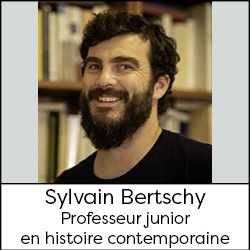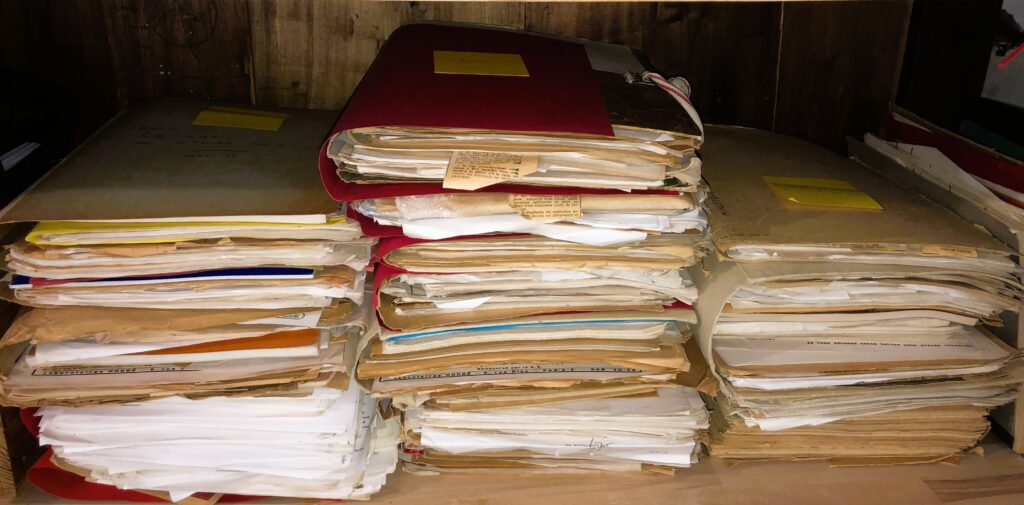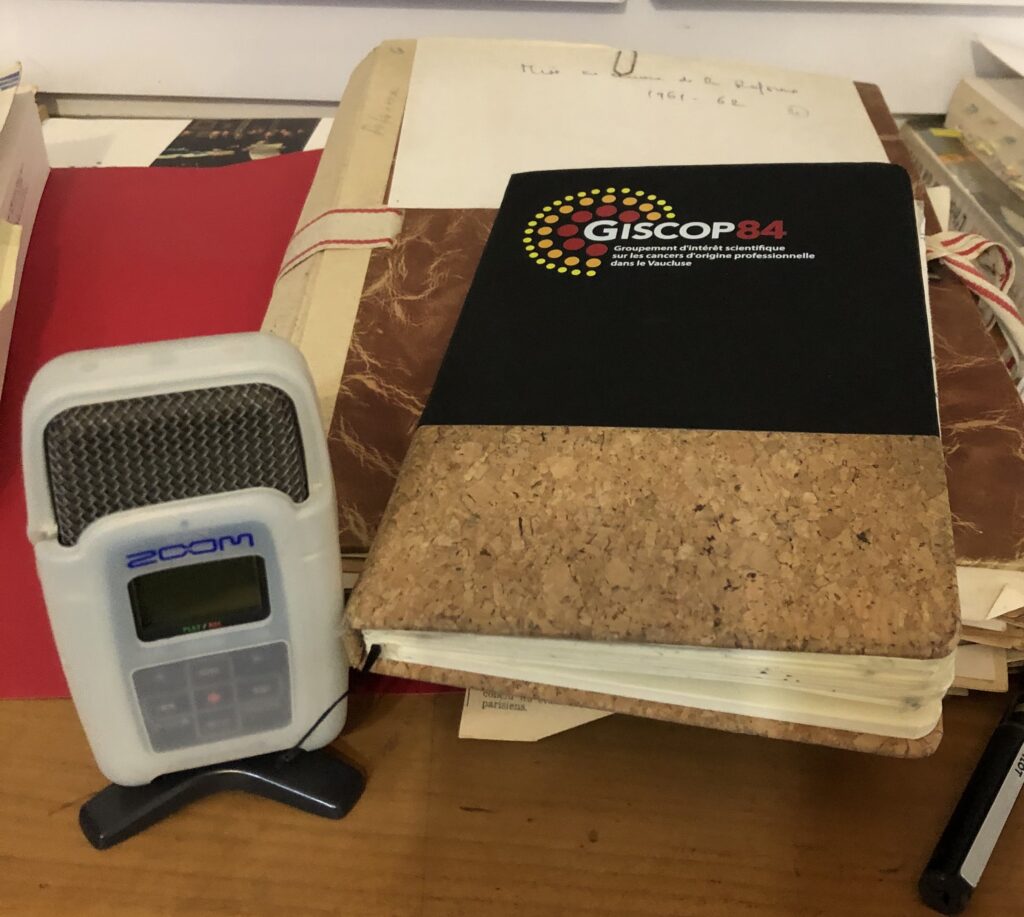[Portrait] Sylvain Bertschy, Junior Professor of Contemporary History (CNE)
What is your research about?
My research questions the transformations in the medical field and health policies in the 20th centuryᵉ century and secondly, how the toxic colonisation of the world is reshaping socio-territorial inequalities in health. The aim is to understand how historical changes in work and production, particularly their chemical intensification, have contributed to the process of toxification of ecosystems and bodies and how, in turn, this process is testing historical forms of social and health protection.

What are your current scientific activities?
I am currently finishing work on the relationship between the medical field and the field of power between 1914 and 1970. A chapter of a book devoted to the role of civilian doctors in the government of health during the war has just been published in a work entitled " On the move. Crossing professional boundaries ". An article on Robert Debré's path to reform is also being written with François Buton for a special issue of the journal Politix.
In addition, two research projects are continuing with the Scientific Interest Group on Occupational and Environmental Cancers (GISCOPE 84). One looks at gender inequalities in relation to exposure to carcinogens in professional cleaning activities, while the other looks at people suffering from work-related cancer while still in work and facing the question of how to return to work. As part of the ToxCit chair, and again in partnership with GISCOPE 84, a research programme is being launched to make work an environmental history issue in its own right, to reconstruct the history of the links and disconnections between occupational health and environmental health, and to understand how areas such as the Rhône valley have become toxic territories.
Why did you choose to work in academic research?
Things are not always a matter of "choice", of rational, well-considered decision. As the social sciences teach us, it's more a question of trajectory, disposition and encounters. For my part, I became a 'good student' late in life, when I discovered research as a Master's student and worked on the history of health policies in the colonies. Research then became an obvious choice, without any certainty of one day becoming a teacher-researcher. There aren't many jobs that allow you to devote time and energy to building a better understanding of the world, perhaps by making it a little more intelligible to others, and to working collectively, with brilliant and committed colleagues, on subjects with high social stakes; it's fascinating.
What advice would you give to students who want to do research?
Research in general - and in the historical and social sciences in particular - is in a very delicate situation, not least because of the drastic and continuing reduction in the number of posts in higher education. In these conditions, perseverance is undoubtedly the first resource to be developed, while remaining lucid. A doctorate is training in research through research, which is often accompanied by a teaching service. It enables you to develop a number of skills that you don't always realise you have when you start out, but which open up avenues other than those offered by universities or research organisations. In short, you have to commit yourself fully, try to surround yourself as well as possible and plan for ways out.
What object or image from your business best illustrates you?
Archives, what else? In this case, files from Robert Debré's unpublished private archives.

The recorder and the notebook, a little outdated no doubt, but indispensable!

The Norbert Elias Centre (UMR 8562)
The Norbert Elias Centre (UMR 8562) brings together researchers from different disciplines who are convinced of the unity of the human and social sciences. The laboratory is located on the EHESS Marseille campus at Vieille Charité and on the Hannah Arendt campus at Avignon University. It brings together 50 researchers, 80 doctoral students and a support team of about ten people who work on the analysis and description of social worlds. The work is organised around four themes: Places and forms of politics; Children, families and kinship; Ecologies and care; Forms and processes of culture.
The portraits
Updated on 13 November 2024